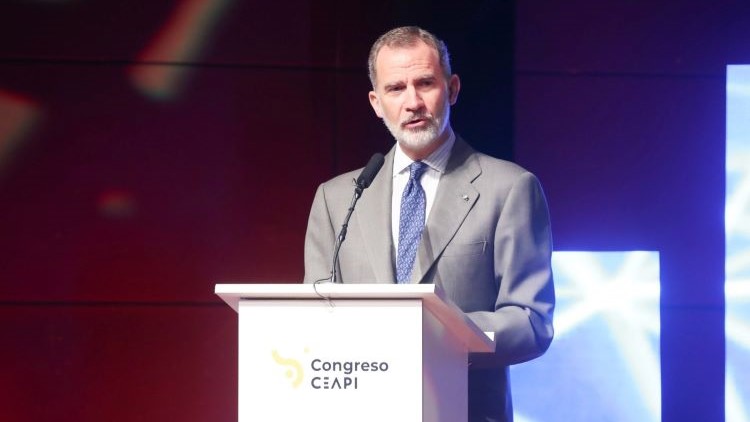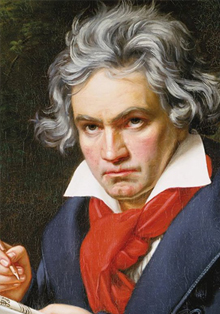The Diplomat
King Felipe VI presided yesterday in Madrid the inauguration of the sixth Ibero-American Congress of the Business Council Alliance for Ibero-America (CEAPI), in which he said that the Spanish Presidency of the Council of the EU and the EU-CELAC Summit represent “a historic opportunity to strengthen and deepen a strategic alliance between Latin America and the Caribbean and Europe adapted to the demands and opportunities of the current context”, a task in which “Spain wants and can be a magnificent promoter”.
The VI CEAPI Ibero-American Congress began yesterday and will last until Thursday at the Reina Sofia Museum in Madrid. The meeting brings together 400 top-level Ibero-American and Spanish businessmen (including more than 350 presidents of the main multi- Ibero-American companies with investments on both sides of the Atlantic), under the slogan Spain, the bridge between Ibero-America and Europe. The time is now: the great opportunity.
The event also brings together numerous institutional representatives, such as Meritxel Batet, President of the Congress of Deputies (Spain); Héctor Gómez, Minister of Industry, Trade and Tourism; Raquel Sánchez, Minister of Transport, Mobility and Urban Agenda; José María Aznar, former President of the Government of Spain; Ana Pastor, Second Vice-President of the Congress of Deputies; Mariano Jabonero, Secretary General of the Organization of Ibero-American States (OEI); Enrique V. Iglesias, honorary president of CEAPI; Sergio Díaz-Granados, president of the Development Bank for Latin America-CAF; Antonio Garamendi, president of the Spanish Confederation of Business Organizations (CEOE), and Gema Sacristán, business director at BID Invest, among others. In addition, Luis Felipe Quintero, Vice Minister of Foreign Trade of Colombia, will be present at today’s event.
The Congress is conducted through plenary lectures and parallel working sessions. In addition to the great challenges to strengthen ties between the European Union and Latin America, the presentations incorporate discussion topics such as innovation and digitization, infrastructure, tourism, raw materials and security, energy, telecommunications and connectivity, family business, women and leadership, and large investments, among others.
At the opening, Núria Vilanova, president of CEAPI, warned of the importance of Spain continuing to be the ‘hub’ chosen by ‘multi-Latin’ companies to invest in Europe and grow in the rest of the world, as well as the bridge for European and third-country investors to strengthen economic ties with Ibero-America. He also stated that, at this time, a long-term alliance between Latin America and the EU is “more necessary than ever”, a task in which “Spain wants and can be the gateway to promote and channel greater investment across the Atlantic from new players interested in the region, such as India, the Middle East and Korea, in addition to the renewed interest of China and other European countries, and the traditional and veteran investors such as Spain and the U.S.”.
In the same vein, King Felipe VI stressed in his speech that “the opportunity is notorious”, since “Spain assumes the rotating Presidency of the Council of the EU and, as soon as this six-month period begins next July, the EU-CELAC Summit will be held in Brussels on the 17th and 18th”. “This great bi-regional meeting is a historic opportunity to strengthen and deepen a strategic alliance between Latin America and the Caribbean and Europe adapted to the demands and opportunities of the current context,” he continued. “Therefore, we should view it with a very special interest because of the obvious potential it holds for strengthening the agenda between the two regions,” he added.
For all these reasons, he said, “we hope that, from the different realities and sensitivities, sometimes not easy to reconcile, substantial steps will be taken that will allow the countries of both regions to become truly aware of the historic opportunity, given the difficult and complex global context, to move forward and achieve powerful agreements that give us greater security and guarantees in trade exchanges and investment operations based on better mutual trust and the intimate proximity of our values.” “In this situation, Spain is called to play a leading role by combining its Ibero-American and European projection. Spain wants to and can be a magnificent promoter of this cooperation and joint work, because it firmly believes in the region,” he added.
The first day began with the first panel, Ibero-America and Europe. The time is now: The great opportunity, moderated by Núria Vilanova and with the participation of Enrique V. Iglesias, first Ibero-American secretary general and honorary president of CEAPI (Uruguay); Andrés Allamand, Ibero-American secretary general SEGIB (Chile); and Mariano Jabonero, secretary general of the OEI.
For her part, the Minister of Transport, Mobility and Urban Agenda, Raquel Sánchez, said during yesterday’s session that Europe and Latin America are moving in a historical context of interdependence, now underlined by the energy, climate and food crises resulting from the situation in Ukraine. In this scenario, he added, “Spain can and wants to be the reference partner and the bridge of connection between both territories”.
At the closing of the first day of the Congress, Antonio Garamendi, president of the CEOE, said that Spanish businessmen are the “spearhead in the defense of the relationship between Spain and Latin America” and, for this reason, warned that the Spanish business world is demanding from Europe “a space of recognition for being part of the growth of the region”. “Spain is fundamental, especially with Latin America, and CEAPI has a lot to say there,” he concluded.
The first chapter of the Congress took place on Tuesday night with a welcome dinner hosted by CEAPI at the Teatro Real in Madrid, during which a tribute was paid to Andrés Allamand for the success of his first Ibero-American Summit at the head of SEGIB, held last March in the Dominican Republic. Antonio Huertas, president of MAPFRE and partner of the organization, presided over the event, together with Ignacio Ybarra, president of Vocento, and Núria Vilanova, president of CEAPI.






